Research Article
Translation
Issue Editorial Board

He was born in 1988 in Kütahya. He completed his primary and secondary education in Kütahya between 1994-2006. He graduated from the Persian Language and Literature Department of the Oriental Languages and Literatures of the Faculty of Language, History and Geography at Ankara University in 2012. In 2013, he was appointed as a research assistant at the Persian Translation and Interpreting Department of the Faculty of Arts and Sciences at Kırıkkale University. In 2014, he completed his master's degree in Persian Language and Literature at the Institute of Social Sciences at Kırıkkale University. In 2020, he completed his doctorate with a thesis titled “Persian Grammar Books Written in the Anatolian Area” in the joint doctorate program in Persian Language and Literature within Kırıkkale University and Ankara University. The author has published articles in various journals such as Nüsha, Erdem, and Tezkire, and his doctoral dissertation, "Persian Grammar Books Written in Anatolia," was published by the Turkish Language Association in 2022. He has been the editor of Nüsha Joorunal since 2017. He is a full member of the Scientific Board of the Atatürk Culture Center Presidency of the Atatürk Supreme Council for Culture, Language, and History. He has participated in education and translation projects at various institutions, including Ankara University TÖMER and the Turks Abroad and Related Communities. His poetry and short story translations appear in the Hece and Hece Öykü magazines. He currently serves as the Cultural and Public Relations Counselor at the Turkish Embassy in Tehran. He is married with two children.

Quartex in gazabına uğradı

Issue Reviewers


د. علي محمد علي غريب
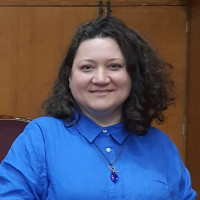
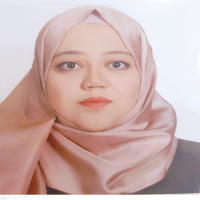
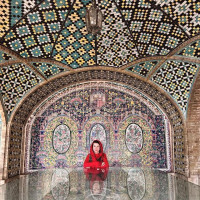
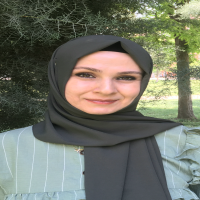
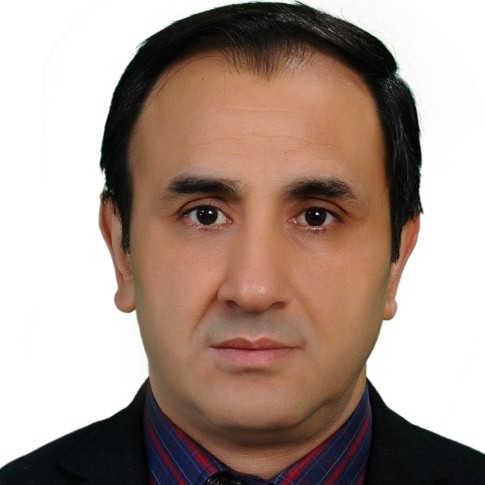
1966 yılında Hatay’ın İskenderun ilçesinde doğdu. İlk, orta ve lise öğrenimini aynı ilçede tamamladı. 1986 yılında girdiği Gazi Üniversitesi Gazi Eğitim Fakültesi Yabancı Diller Eğitimi Bölümü Arap Dili Eğitimi Anabilim Dalı’ndan 1990’da mezun oldu. Bir yıl sonra Milli Eğitim Bakanlığı’nın burslusu olarak Ürdün’de yüksek lisans eğitimine başladı. 1994 yılında Türkiye’ye döndü ve Gazi Üniversitesi Gazi Eğitim Fakültesi Yabancı Diller Bölümü Arap Dili Eğitimi Anabilim Dalı’nda okutman olarak göreve başladı. Ürdün Üniversitesinde başladığı yüksek lisans eğitimini 1998’de Gazi Üniversitesi Sosyal Bilimler Enstitüsü’nde “Mehcer Edebiyatı ve Arap Edebiyatına Etkisi” başlıklı tezle tamamladı. Ertesi yıl başladığı Doktora eğitimini 2004 yılında Gazi Üniversitesi Eğitim Bilimleri Enstitüsünde “Modern Arapçadaki Deyimlerin Dilbilimsel Açıdan İncelenmesi ve Yabancı Dil Öğretimindeki Yeri” başlıklı tezle tamamladı.
Lisans ve lisansüstü düzeyde verdiği dersler arasında “Okuma Becerileri”, “İleri Okuma Becerileri”, “Çocuklara Yabancı Dil Öğretimi”, “Atasözü ve Deyim İncelemesi”, “Dil Felsefesi ve Arap Dili”, “Psikodilbilim”, “Kuramsal Dilbilim” gibi dersler bulunmaktadır. Üç çocuk babası olup hâlen Gazi Üniversitesi Gazi Eğitim Fakültesi Yabancı Diller Eğitimi Bölümü Arap Dili Eğitimi Anabilim Dalı’nda öğretim üyesi (Prof. Dr.) olarak görevine devam etmektedir.


Lisans:19 Mayıs Üniversitesi İlahiyat Fakültesi (1985).
Yüksek Lisans: Gazi Üniversitesi Eğitim Bilimleri Enstitüsü Arapça Öğretmenliği Bilim Dalı (2014).
Doktora: Yıldırım Beyazıt Üniversitesi Sosyal Bilimler Enstitüsü Arap Dili Ve Belagatı Bilim Dalı (Tez Dönemi Öğrencisi) (2023).


Bartın Üniversitesi, Edebiyat Fakültesi, Mütercim ve Tercümanlık Bölümü, Arapça Mütercim Tercümanlık Anabilim Dalı

1971’de Mardin Yeşilli’de doğdu. İlk ve ortaokulu Yeşilli’de bitirdikten sonra
1983’te Bitlis Öğretmen Lisesi’ne girdi. 1986’da girdiği Ankara Üniversitesi DTCF
Arap Dili ve Edebiyatı Ana Bilim Dalı’ndan 1990’da mezun oldu. Vakıflar Genel
Müdürlüğü (1992-1993) ve Basın Yayın ve Enformasyon Genel Müdürlüğü’nde
(1993-2006) mütercim, Kültür ve Turizm Bakanlığı’nda (2007-2011) Kültür ve Turizm
Uzmanı olarak çalıştıktan sonra 2011’de Gazi Üniversitesi’nde Arapça okutmanı
olarak göreve başladı. 2002’de tamamladığı yüksek lisans tezinde ‘Arap Basınında
Türkiye’, 2017’de tamamladığı doktora tezinde ‘Mardin’de Konuşulan Arapça Lehçe’
konusunu ele aldı. Bu çalışması 2018’de ‘Mardin Arapça Diyalekti’ adı altında
kitaplaştı. 1990’lı yılların başlarından itibaren Farsça ve Arapçadan yaptığı çeşitli
çevirileri yayımlandı. 2010-2011 yılları arasında Mevlâna Celaleddin-i Rumî’nin
Divan-ı Kebir ve Mesnevisinden yaptığı manzum tercümeler ‘Etme’ ve ‘Gülşen’
isimleriyle ayrı birer kitap olarak yayımlandı. 2015’te Türkçeye çevirdiği ‘Katar Öykü
Antolojisi’ 2016’da Katar’da yayımlandı. 2018’de Suriyeli şair Nizar Kabbanî’den
Türkçeye çevirdiği çeşitli şiirlerden oluşan “Kelimelere Benzemeyen Kelimeler” adlı
seçki yayımlandı. 2019’da hazırlamış olduğu Bulmacalarla Arapça adlı çalışması
basılırken aynı yıl Muhammed Abid el-Câbirî’den yaptığı İslam Düşüncesinde
Demokrasi İnsan Hakları ve Hukuk adlı çeviriden sonra 2022’de İbn Fadlan
Seyahatnamesi’ni Türkçeye çevirdi. Yine 2022'de Türkçeye çevirdiği Ömer
Hayyam Rubaileri Kapra Yayıncılık tarafından yayımlandı. Halen Gazi Üniversitesi’nde
Doç. Dr. Öğr. Gör. olarak görev yapmaktadır.




15 Yıllık pratik deneyime sahip bir Arapça öğretmeni ve öğretim yöntemleri uzmanı



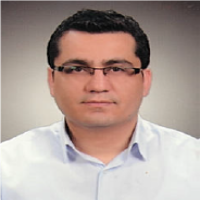

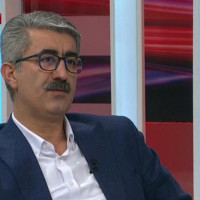
Aim & Scope
Nüsha Journal of Oriental Studies is a peer-reviewed
international journal which is published twice a year in June and December.
Nüsha accepts the articles written in the field of orientalism, (language,
literature, literary history, culture); verification and presentation of
manuscripts, scientific criticism, book criticism and translated articles. The
articles to be published are required to comply with the criteria of scientific
research, to bring an innovation to the world of science and not to be
published elsewhere.
Nüsha Journal of Oriental Studies is a peer-reviewed international journal in the field of Orientalism (language, literature, literary history, culture), published twice a year.
The language of the journal is Turkish, Arabic, Persian, Urdu and English. Nüsha Journal of Oriental Studies is an Open Access journal and provides direct access to the content it publishes.
Author Guidelines
NÜSHA (JOURNAL of ORIENTAL STUDIES)
PUBLICATION POLICY
Nüsha (Journal of Oriental Studies) is a peer-reviewed international journal which is published twice a year in June and December. Nüsha accepts the articles written in the field of orientalism, (language, literature, literary history, culture); verification and presentation of manuscripts, scientific criticism, book criticism and translated articles. The articles to be published are required to comply with the criteria of scientific research, to bring an innovation to the world of science and not to be published elsewhere. Article processes are carried out through https://dergipark.org.tr/tr/pub/nusha
Evaluation of articles
• The first page of the article should contain the author's name, surname, title, institution, e-mail and Orcid No.
• If the manuscripts submitted to Nüsha Oriental Studies Journal are subjected to preliminary evaluation in terms of compliance with the principles of the journal, they are sent to two referees from the same field for scientific review. In this process, the identity of the referees and the author is kept confidential.
• If one of the referee reports for publication is positive and the other is negative, the work is sent to a third referee.
• The articles that are decided to be published are published in the printed and online form after the page arrangement.
• All responsibility for the content of the manuscripts published in Nüsha Journal of Oriental Studies belongs to the authors.
Publishing language
• The publication language of Nüsha is Turkish of Turkey. However, English, Arabic, Persian and Urdu articles may be published with the decision of the editorial board. In addition, Arabic, Persian and Ottoman Turkish manuscripts that not more than 20 pages may be published.
Spelling rules and page layout
• Manuscripts should be written in MS Word or compatible programs. The font should be Times New Roman, 11 pt and 1.5 line spacing.
• The page is A4-size; top, bottom and right margin 2.5 cm; the left margin should be 3 cm.
• Paragraph spacing before must be 0 nk, after 6 nk.
• The title of the manuscript should be written in bold and should be compatible with the content of the subject.
• At the beginning of the articles except for book criticism there must be Turkish and English abstracts consisting of at least 200 words and keywords consist of 4 to 5 words. Turkish and English titles of the manuscript should be included. Abstracts in Turkish or English are required for the articles in Arabic or Persian.
• Authors whose work is accepted for publication are required to add a structured abstract that consist of at least 700 words followed by an abstract in English with the title of Structured Abstract. The structured abstract should include findings outside the introductory part of the study and conclusions. Structured abstract will make it easier for articles to be cited in abroad.
• Titles should be written in bold. The use of intermediate titles in long articles will be beneficial for the reader.
• The spelling and punctuation guidelines of the Turkish Language Association should be taken into consideration in cases where the article or subject necessitates.
• It is sufficient to show the places that you want to emphasize in the text with “quotes”.
• When quoting the block, the entire quotation should be in a tab (1 cm). References should be cited when the citation is finished (source, year, page number).
• In articles with multiple authors, the manuscript should be uploaded to the system with the name of first author. The names of subsequent authors should be indicated on the system in the other authors section.
Reference
• Nüsha Journal of Oriental Studies accepts APA 6.0 or Endnotes citation.
• In-text references should be presented as author surname, year of the work and page number. Ex. (Sahinoglu, 1991, p. 97).
• If there is a compiler, translator, author, proofreader or editor of a work, it should be surely shown in the bibliography.
• In electronic sources, the author, the title of the work and the publication date should be used. Access date must be given in the bibliography within the last six months.
• References that are not cited in the text should not be shown in the bibliography.
• Bibliography should be arranged alphabetically according to the surnames of the authors at the end of the article. In more than one work of the same author, the author's name is indicated with a straight line after the first source.
• Articles written in languages other than the Latin alphabet such as Arabic, Persian and Urdu must include the title, abstract and keywords written in Latin letters; The sources used in the bibliography should be given in transcription/translation.
Author's Surname, Initials of Author's Name. (Year). The name of the book is italic and the first letters are in big letters (except conjunctions). Place of Publication: Publisher.
Author's Surname, Initials of Author's Name. (Year). The name of the book is italic and the first letters are in big letters (except conjunctions). (First Letters of Translator's Name. Translator's Surname, Translated.) Print Place: Publisher.
Babacan, İ. (2015). “Tarzî-i Efşâr’ın Türkçe Şiirleriyle Farsçada Oluşturduğu Folklorik Bir Üslup” Bilig. (Yaz, 74, s. 21-44) Ankara.
Coşguner, F. (2002). Menûçihrî-yi Dâmgânî, Divanının Tahlili ve Tercümesi. (Yayımlanmamış Doktora Tezi) Ankara Üniversitesi, Sosyal Bilimler Enstitüsü, Ankara.
Dostoyevski, F. M. (2015). Yeraltından Notlar. (N. Y. Taluy, Çev.) İstanbul: İş Bankası Kültür Yayınları.
Irâkî, F. (1386/2007). Külliyât-ı Fahreddîn-i Irâkî. (tsh. Doktor Nesrîn Muhteşem) Tahran: İntişârât-i Zevvâr.
Kırlangıç, H. (2014). Meşrutiyetten Cumhuriyete İran Şiiri. Ankara: Hece Yayınları.
¬¬¬¬¬¬¬———, (2010). Ahmed Şamlû ve Şiiri, Yalnız Yürüyen Adamın Şarkısı. İstanbul: Ağaç Yayınları.
Murtaza, K. (1384/2005). Şamlû ve Câ-yi Şi‘reş. Vijenâme. (Sonbahar/Kış, I, s. 71-76)
https://www.noormags.ir/view/fa/articlepage/291218/ adresinden erişilmiştir. (Erişim tarihi: 26.04.2018).
Şahinoğlu, M. N. (1991). “Attâr, Ferîdüddîn”, Türkiye Diyanet Vakfı İslam Ansiklopedisi. (IV, s. 95-98) İstanbul: Türkiye Diyanet Vakfı Yayınları.For detailed information, please refer to https://www.tk.org.tr/APA/apa_2.pdf
Contact: akademiknusha@gmail.com
Web Page: http://nusha.com.tr/
Ethical Principles and Publication Policy
Publication Ethics Statement
All parties involved in the publication process (authors, editorial board and reviewers) must make decisions in accordance with ethical standards of conduct. Nüsha Journal expects all parties to comply with these standards. Best publication ethics standards are upheld and all possible precautions are taken against publication malpractices. Nüsha Journal, as a publisher, takes its duty of guardianship seriously in all stages of publishing and accepts its ethical and other responsibilities.
International Standards for Authors
Nüsha Journal does not request a signed application letter from all authors of an article and does not impose any practices that impose orders on authors. All authors applying to Nüsha Journal are expected to voluntarily comply with international standards [ethical principles determined by the Committee on Publication Ethics (COPE). https://publicationethics.org /].
Authors must confirm that their articles are original works. Plagiarism, fabrication, forgery, duplicate publication, data production, etc. are prohibited.
Authors should not cause physical or legal harm to research participants and should not engage in psychological abuse. In addition, authors should guarantee the privacy and anonymity of their research participants.
Authors should identify the persons or institutions that support the research (sponsor).
Authors should confirm that the article has not been published before and is not currently being evaluated for publication elsewhere.
Authors should make sure that they have included all sources used in the preparation of their article in the reference list.
When an author discovers a significant error or inaccuracy in their published work, they must immediately notify the journal editor or publisher and cooperate with the editor to retract or correct the article.
Authors should report any conflict of interest or convergence of interest to Nüsha Journal.
All submitted articles must be subject to similarity control by the authors using the ithenticate program and the similarity report must be uploaded to the journal system together with the article. Authors must absolutely avoid plagiarism, including self-plagiarism. Articles with results exceeding 18% in the similarity report outside the References section are not evaluated by Nüsha Journal. International Standards for the Editorial Board
Editorial Board and Editorial Board members are required to comply with the international standards of the Editorial Board. The editor and editorial board members of Nüsha Journal are expected to voluntarily comply with international standards [the ethical principles determined by the Committee on Publication Ethics (COPE). https://publicationethics.org / ].
The Editorial Board thoroughly checks submitted articles to determine whether they can be published and to prevent misconduct. If a study is identified as malicious, the relevant author is responsible for retracting or correcting the article based on feedback from the editor and reviewers.
The Editorial Board must keep all information regarding submitted articles confidential.
The Editorial Board is responsible for making publication decisions for submitted articles.
The Editorial Board should strive to meet the needs of readers and authors.
The Editorial Board should strive to improve and develop the quality of Nüsha Journal.
The Editorial Board should attach utmost importance to scientific quality and originality.
The Editorial Board should always be ready to publish corrections, clarifications, retractions and apologies when necessary.
International Standards for Reviewers
Reviewers must comply with international review standards after accepting the review invitation. Reviewers of Nüsha Journal are expected to voluntarily comply with international standards [the ethical principles determined by the Committee on Publication Ethics (COPE). https://publicationethics.org /].
Reviewers must keep information about the manuscript confidential.
Reviewers must bring to the attention of the Editorial Board all information that may be grounds for rejecting the publication of the manuscript.
Reviewers must evaluate the manuscripts in terms of scientific quality.
Reviewers must objectively evaluate the manuscripts only according to their originality, importance and relevance to the journal's fields.
Reviewers must notify Nüsha Journal of any conflict of interest.
Approval Policy
Author/s must comply with ethical and legal standards and the following conditions must be notified to those who participated in the research conducted to produce the manuscript:
Participants in your research must be informed that a study will be conducted on them.
Participants in your research should be informed that participation is voluntary, that there is no penalty for refusing to participate, and that participants can withdraw at any time without penalty.
Participants in your research should be informed about the purpose of your research and the procedures you will follow in the research.
Participants in your research should be informed about the contact information where they can reach you for answers to questions about the research.
Participation in your research
Price Policy
Free







